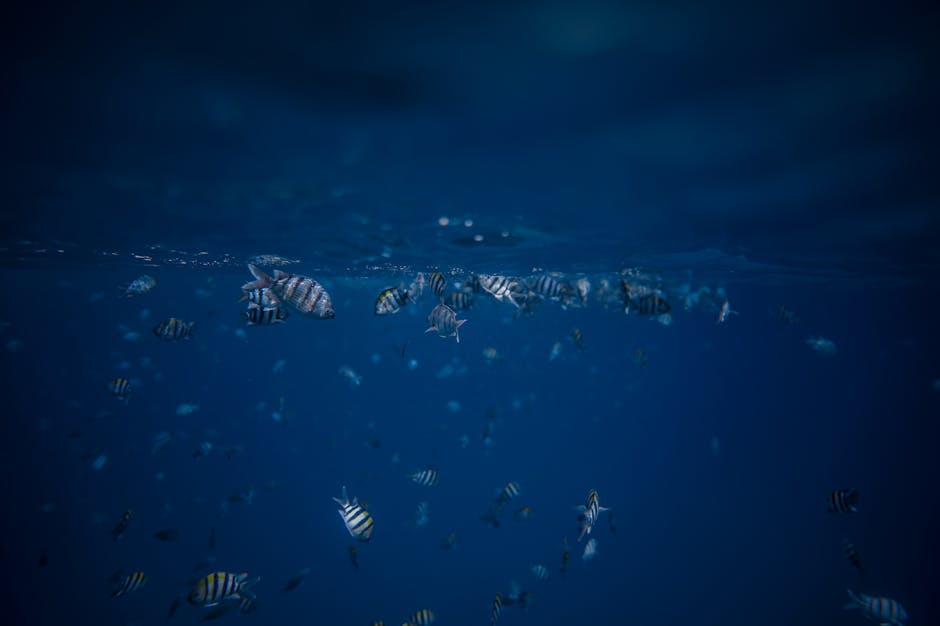Marine ecosystems, intricate webs of life spanning vast oceans, are facing unprecedented challenges. Pollution, in its various forms, is a significant contributor to these mounting problems, with far-reaching impacts on biodiversity, ecosystem functioning, and human well-being. This article delves into the diverse ways pollution disrupts the delicate balance of marine environments, examining its consequences across different trophic levels and the broader implications for ocean health.
Pollution’s insidious intrusion into the marine realm is multifaceted, encompassing a spectrum of contaminants. Chemical pollutants, including pesticides, heavy metals, and industrial chemicals, seep into the water column through various pathways, from agricultural runoff to industrial discharge. These pollutants exert a range of detrimental effects, affecting organisms at every stage of their life cycles.
A crucial aspect of pollution’s impact is its bioaccumulation within marine organisms. Organisms lower on the food chain, like phytoplankton and zooplankton, absorb these substances from the water. Subsequent consumption by higher trophic levels, such as fish and marine mammals, results in an escalating concentration of pollutants up the food chain. This phenomenon, known as biomagnification, can lead to significant health problems in top predators, disrupting their reproductive capabilities, affecting their immune systems, and potentially causing developmental abnormalities.
The impacts of pollutants are not limited to the chemical realm. Nutrient pollution, primarily from agricultural runoff, leads to a critical issue: eutrophication. Excessive nutrients, such as nitrogen and phosphorus, fuel algal blooms, forming dense mats of algae across the surface of the water. These blooms, while initially appearing vibrant, have catastrophic consequences. They consume vast amounts of dissolved oxygen during decomposition, leading to hypoxic or anoxic zones, areas devoid of oxygen necessary for marine life. This phenomenon, frequently referred to as dead zones, decimates fish populations, suffocating marine organisms and disrupting the natural food web.
Physical pollution, including plastic debris, is another pressing concern. Plastic waste, from discarded fishing nets to microplastics originating from the breakdown of larger items, pervades marine environments. This debris can entangle marine animals, leading to suffocation, starvation, and injury. Furthermore, ingestion of plastic by organisms can cause internal blockages and accumulation of toxins in their tissues, impacting their health and well-being.
Furthermore, noise pollution, often associated with shipping traffic and sonar usage, has a significant impact on marine animals’ behaviour and communication. Marine mammals, for example, heavily rely on sound for navigation, communication, and foraging. Prolonged exposure to high levels of noise can disrupt their acoustic cues, leading to navigational errors, miscommunication, and ultimately, impacting their survival.
The consequences of pollution are not merely localized; they cascade throughout the entire marine ecosystem. Disruptions to the balance of the food web can trigger a chain reaction, affecting everything from the smallest plankton to the largest whales. A decline in one species can have far-reaching repercussions for others that depend on it for food or habitat, potentially causing cascading extinctions.
The deterioration of marine ecosystems also has significant repercussions for human society. Fisheries, a critical source of protein for billions worldwide, are impacted by pollution. Declining fish populations and polluted seafood have profound economic implications for coastal communities heavily reliant on fishing. Moreover, the loss of biodiversity and ecosystem services, such as the purification of water, threatens human well-being and the long-term sustainability of our planet.
Mitigation strategies are crucial for tackling the pervasive problem of pollution in marine ecosystems. Implementing stringent regulations on industrial discharges and agricultural runoff is paramount. Reducing plastic consumption and promoting the responsible disposal of waste are also critical steps. Promoting sustainable fishing practices and protecting marine protected areas are also essential for long-term conservation.
Technological advancements offer promising avenues for mitigating pollution. Innovative wastewater treatment technologies can remove harmful pollutants from industrial and municipal runoff, while advanced monitoring techniques can identify and track pollution sources. Education and awareness campaigns are also critical to fostering responsible environmental stewardship, engaging communities in adopting sustainable practices, and advocating for effective policy changes.
In conclusion, the impacts of pollution on marine ecosystems are far-reaching and profound. The intricate web of life in the oceans is under considerable stress, facing numerous threats from various forms of pollution. Addressing this pressing issue requires a multi-faceted approach, encompassing stringent regulations, sustainable practices, technological innovations, and increased public awareness. By implementing these measures, we can strive towards a healthier future for our oceans and safeguard the invaluable services they provide to all life on Earth.
